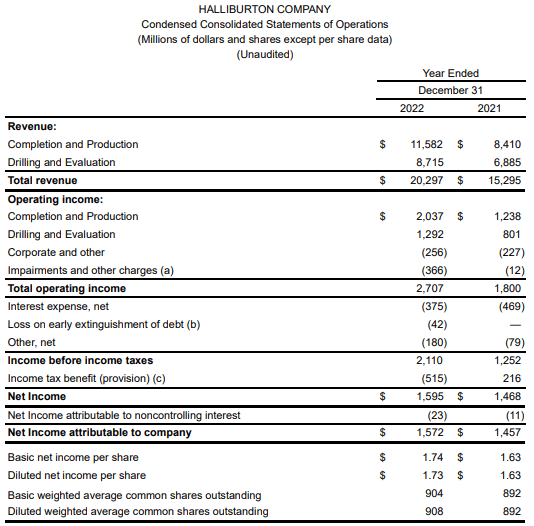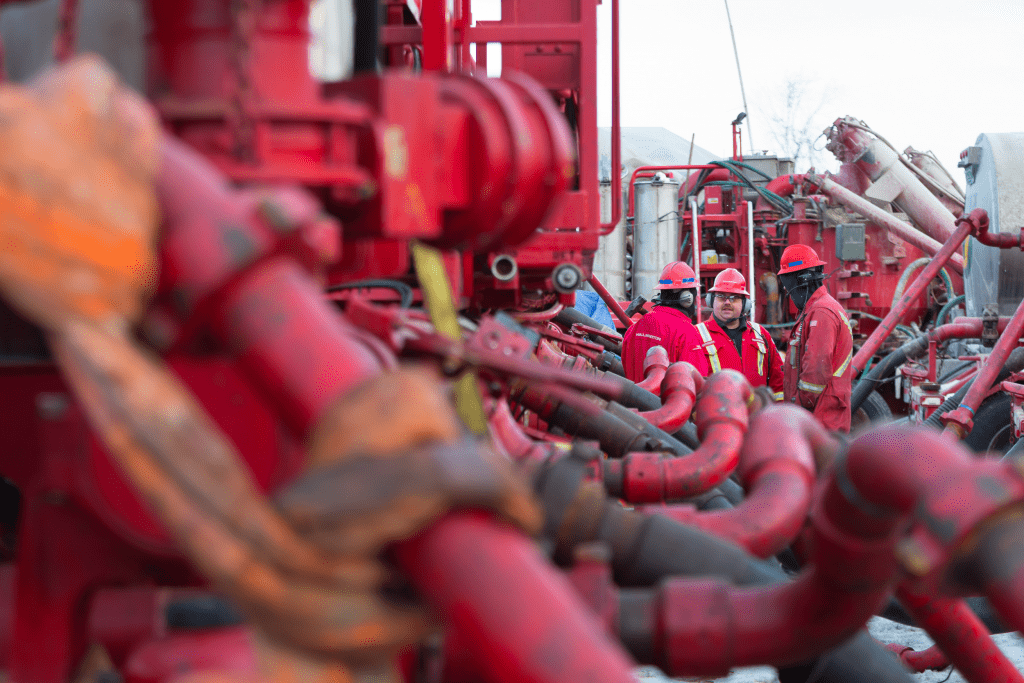Halliburton Company increased from 40% to 45% its share of revenue generated in the United States from 2021 to 2022, considering the location of services provided and products sold.
One of the largest diversified energy services companies, Halliburton sells services and products in more than 70 countries around the world.
During 2022, the company generated total revenues of $20.3 billion, 33 percent higher than in 2021, with revenues from its Completions and Production (C&P) segment increasing 38 percent and revenues from its Drilling and Evaluation (D&E) segment increasing 27 percent.


In 2022, Halliburton recorded total operating revenues of approximately $2.7 billion, compared with operating revenues of $1.8 billion in 2021.
Primarily, these increases were due to increased demand for its products and services in North America, linked to a substantial improvement in the average rig count in North America during 2022.
At the same time, both segments were negatively impacted by our exit from Russia in the third quarter of 2022.
Halliburton
Since the early 2020s, global oil and gas supply and demand imbalances and the resulting volatility in oil and natural gas prices (also as a result of the Covid-19 pandemic) have led to dramatic fluctuations in the oil and gas markets.
Volatility continued in 2022 as markets were affected by inflationary pressures, changes in OPEC+ production levels, supply chain shortages, demand uncertainty and geopolitical conflicts, including Russia‘s invasion and the ongoing war with Ukraine.
The average West Texas Intermediate (WTI) crude oil price was approximately $88 per barrel during the fourth quarter of 2022 and $96 per barrel for the full year 2022.
Meanwhile, the average U.S. rig count remains below pre-pandemic levels, but showed improvement in each quarter of 2022.
While the average Brent crude oil price was $89 per barrel during the fourth quarter of 2022 and $101 per barrel for the full year 2022, the average international rig count improved in the second half of 2022.
Logistics
Globally, the company is being impacted by supply chain shortages and increased lead times as the post-pandemic recovery stressed both feedstock supply and transportation logistics.
As a consequence of the Russian invasion of Ukraine, the governments of the European Union, the United States, the United Kingdom, Switzerland and other countries enacted new sanctions against Russia and Russian interests.
In order to comply with these sanctions, Halliburton ceased pursuing future business in Russia and began winding down its remaining Russian operations in March 2022.
During the second quarter of 2022, the company made the decision to sell its Russian operations and completed the sale in the third quarter of 2022.
In 2022, Halliburton hired about 10,500 new employees and was able to rehire more than 3,000 former employees despite the labor shortage.
![]()

